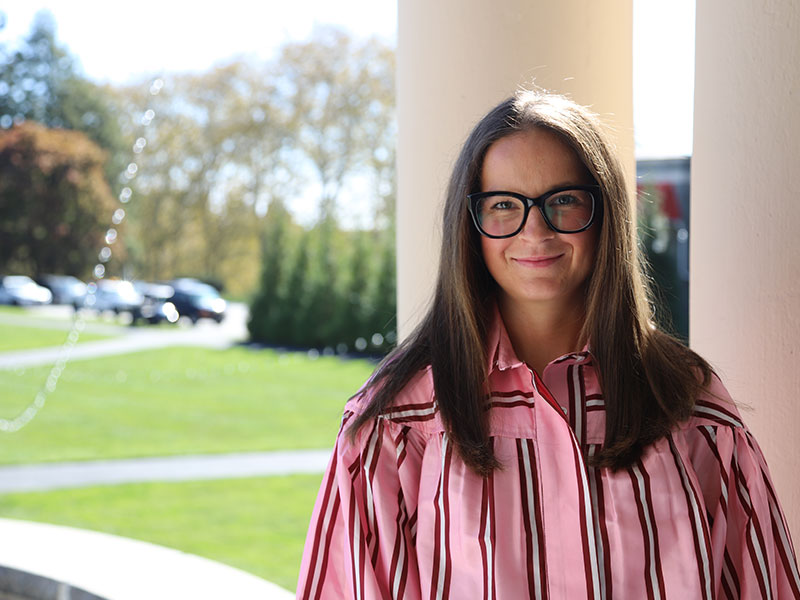
Caroline McArdle ’25, a fashion merchandising major at Immaculata University, is putting the world on notice that Mighty Macs are forces to be reckoned with.
McArdle discovered as a child that she had a muscle weakness disorder and learning disabilities that influenced the ways in which she approached reading, language and comprehension. Undaunted, she chose to pursue her passion for fashion at Immaculata, where she leverages various campus resources. One of those resources is the disability services office that helps support her learning style by allowing her to record class lectures and granting her extra time for quizzes and exams. What’s more, Immaculata’s smaller class sizes provide her with individual attention from professors, allowing her to thrive within the close-knit fashion program.
However, as she learns more about the professional fashion world, McArdle sees a drastic contrast to her experience at Immaculata. According to a 2019 survey by Leonard Cheshire, an organization that provides support to people with disabilities, “Disabled models are rarely seen in online editorials, magazines, or on the runway, and consumers with physical disabilities are frequently neglected among luxury and high street brands.”
Recognizing a need for change, McArdle says, “There’s probably a lot more people like me, and in fashion, you need diversity in all shapes, sizes and races. People with disabilities can be models too, and we want to include them.”
The pressure to conform to the traditional expectations of the fashion industry was initially challenging for McArdle, but Lina Castro, the director of the fashion merchandising program at Immaculata, helped her realize that these challenges can be overcome, as industry stereotypes and expectations are changing. To facilitate industry change, Castro’s class assignments consistently emphasize diversity in multiple ways, including encouraging students to think beyond American culture and to consider fashion from a global, broader perspective that is inclusive of all abilities, body types, ethnicities, skin colors, gender identities and more.
With a strong support system around her, McArdle is now able to be herself without fear of failure or discrimination. “You can have a disability. No one is going to care. I used to care about that because I thought people viewed me differently,” McArdle acknowledged.
With her new-found confidence, McArdle discovered an aspect of the fashion industry that piqued her interest: interior design. After helping with major interior design projects that her mom launched, McArdle added minors in visual merchandising and graphic design. She loves creating displays for classes and repurposing fabric and materials, which are inspiring her to consider a career in fashion-related interior design where she can help homeowners decorate or renovate their homes.
Castro believes McArdle will make significant contributions to the fashion industry and serve as a role model for girls from diverse backgrounds.